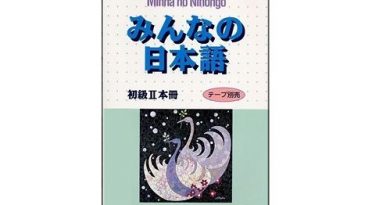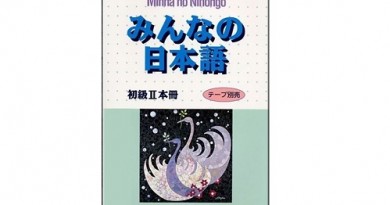Contents
Learn minna no nihongo lesson 36
3. Grammar
V1る/V1ない ように、 V2
Meaning : to do V1, we have to do V2
Usage : Express the goals (do something to reach the goals). The verbs before [ように] are in potential form.
Example :
覚えるように、毎日練習します。
oboeru youni, mainichi renshuu shimasu.
I practice everyday to remember it.
忘れないように、メモします。
watsurenai youni, memoshimasu.
I will make a note so that I don’t forget.
Vる/ Vなく+ ように なります。
Meaning : Become…
Usage :
Vる+ ように/ Vなく なります : Talk about new habits or doing somethings that didn’t do before and vice versa.
V (potential form) + ように なります。Describe the change from impossible thing to possible thing.
Example :
やっと自転車に乗れるようになりました。
yatto jitensha ni noreru yoni narimashita.
I finally can ride a bicycle.
Vる/Vない + ように します。
Meaning : Try to do something
Usage : Talk about trying to do or not to do something
Example :
毎日日本語を勉強するようにします。
Mainichi nihongo wo benkyou suru youni shimasu.
I will try to study Japanese everyday.
とか
Meaning : such as, or something like that...
Usage : Use to list, give example.
Example :
どんなスポーツをしていますか。
donna supo-tsu wo shiteimasu ka
Which sport do you play?
テニスとか水泳とか。。。
Tenisu toka suiei toka…
Tennis, swimming, or something like that.
4. Kaiwa
あたまと からだを 使うように して います。
アナウンサー: 皆さん、こんにちは。健康の 時間です。
anaunsa: minasan, konnichiha. kenkou no jikan desu.
アナウンサー: きょうの お客様は ことし 80歳の 小川よねさんです。
Anaunsa: kyou no okyakusama ha kotoshi 80 sai no ogawa yone san desu.
小川よね: こんにちは。
ogawa yone: konnichiha.
アナウンサー: お元気ですね。何か 特別な ことを して いらっしゃいますか。
Anaunsa: o genki desu ne. nani ka tokubetsu na koto o shi te irasshai masu ka.
小川よね: 毎日 運動して、何でも 食べるように して います。
ogawa yone: mainichi undou shi te, nani demo taberu you ni shi te i masu.
アナウンサー: どんな 運動ですか。
Anaunsa: donna undou desu ka.
小川よね: ダンスとか、水泳とか ・・・・・。
ogawa yone: dansu toka, suiei toka……
小川よね: 最近 タンゴが 踊れるように なりました。
ogawa yone: saikin tango ga odoreru you ni nari mashi ta.
アナウンサー: すごいですね。食べ物は?
Anaunsa: sugoi desu ne. tabemono ha?
小川よね: 何でも 食べますが、特に 魚が 好きです。
ogawa yone: nani demo tabe masu ga, tokuni sakana ga suki desu.
小川よね: 毎日 違う 料理を 作るように して います。
ogawa yone: mainichi chigau ryouri o tsukuru you ni shi te i masu.
アナウンサー: 頭と 体を よく 使って いらっしゃるんですね。
Anaunsa: atama to karada wo yoku tsukatte irassharun desu ne.
小川よね: ええ。来年 フランスへ 行きたいと 思って、フランス語の 勉強も 始めました。
ogawa yone: ee. rainen furansu he iki tai to omotte, furansugo no benkyou mo hajime mashi ta.
アナウンサー: 何でも チャレンジする 気持ちが 大切ですね。
Anaunsa: nani demo charenji suru kimochi ga taisetsu desu ne.
アナウンサー: 楽しい お話、どうも ありがとう ございました。
Anaunsa: tanoshii ohanashi, doumo arigatou gozai mashi ta.
Translation:
I try to use both my head and body.
Announcer: Hello everyone. It’s time for health.
Today’s guest is Mrs. Yone Ogawa who is 80 years old this year.
Kogawa Yone: Hello.
Announcer: You are healthy. Do you do something special?
Kogawa Yone: I try to exercise every day and eat everything.
Announcer: How do you do exercises?
Kogawa Yone: I dance, swimming, etc.
Recently, I have become able to dance the tango.
Announcer: That’s great. What about the food?
Kogawa Yone: I eat everything, but I especially like fish.
I try to make different dishes every day.
Announcer: You use both your head and body very well.
Kogawa Yone: Yes. I want to go to France next year, so I have also started studying French.
Announcer: It’s important to challenge yourself the new things.
Thank you very much for the pleasant conversation.
Please see the renshuu section on the next page.

